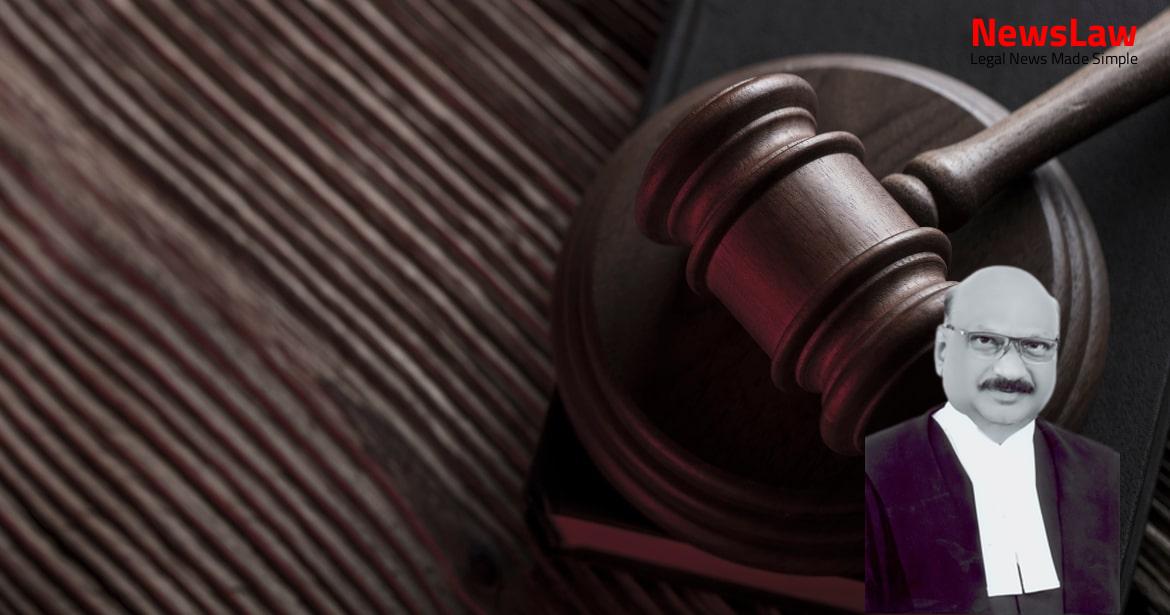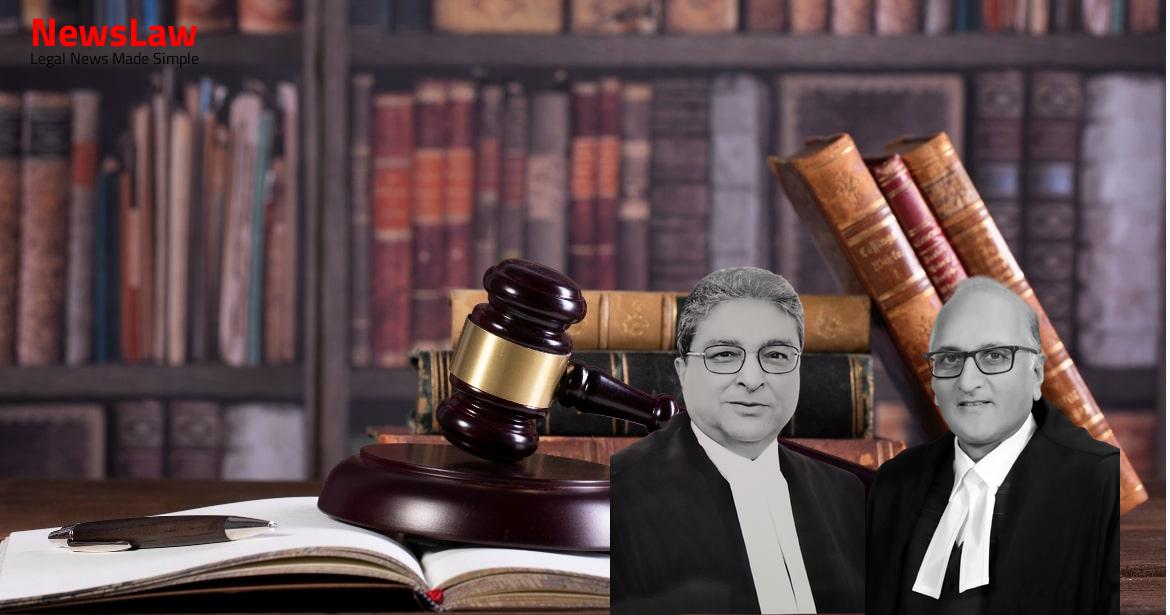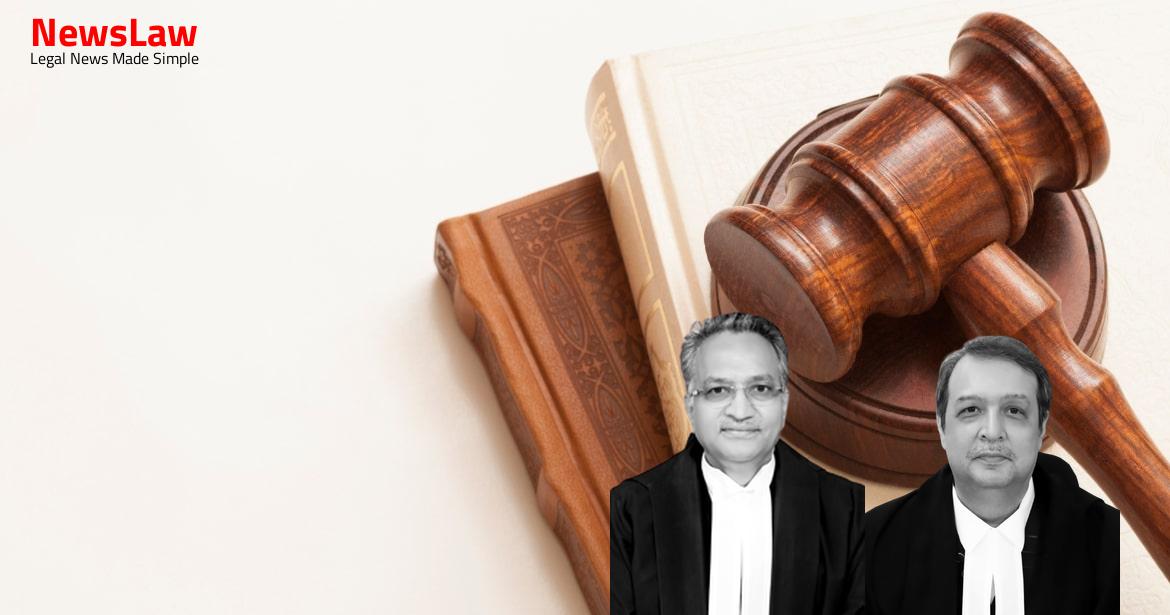In a significant legal case involving a land dispute and murder, the Supreme Court of India has ruled on the conviction of the accused. The dispute between the deceased and the accused regarding the registration of land led to a tragic outcome. The High Court’s decision was upheld, emphasizing the gravity of the offense. Learn more about the details and implications of this ruling.
Facts
- The High Court of Judicature at Madras dismissed the appeal and upheld the appellant’s conviction and sentence under Section 302 read with Section 34, IPC.
- The prosecution case involved the deceased, Karuppusamy (A1), and the appellant, Sadayappan @ Ganesan (A2), who were neighboring agricultural landowners going for rabbit hunting together in a nearby forest area.
- Charges were framed against the accused-appellant under Section 302 read with Section 34, IPC, to which he pleaded not guilty and requested a trial.
- After an extensive trial, the Trial Judge found that the circumstantial evidence established the accused’s involvement, indicating that A1 and A2, due to prior enmity, acted with common intention to murder the deceased using the unauthorized gun owned by the appellant.
- Consequently, the Trial Court convicted the appellant under Section 302 read with Section 34, IPC, sentencing him to life imprisonment and a fine of Rs. 10,000.
- Complaint registered under Section 302, IPC and Section 25 (1B)(a) of the Indian Arms Act against the accused.
- A2, the adjacent landowner, always supported A1 in avoiding registration of the sale deed with the deceased Thangaraj.
- Deceased negotiated to buy land from A1 15 years prior, paid Rs. 30,000, but the sale deed was not registered.
- Deceased found dead with bleeding injuries near fields; A1’s appeal abated due to death during pendency.
- A1 and deceased had animosity due to sale deed issue; A2 supported A1’s stance.
- A2 and A1 confessed to the crime before the VAO on August 29, 2008.
- A1 and A2 took deceased to the fields/forest on May 27, 2008, and later informed PW1 of the same.
Also Read: Anticipatory Bail Application in Different Cases: Landmark Judgment by the Supreme Court of India
Arguments
- The appellant (A2) argued that the courts erred in holding that he had a motive to commit the crime and a common intention with A1.
- The dispute between A1 and the deceased over land had been settled amicably in the panchayat.
- A1, A2, and the deceased were on friendly terms as they used to go hunting together after the land dispute was resolved.
- The chain of circumstances linking the appellant to the crime is considered incomplete.
- The testimonies of interested witnesses who are relatives of the deceased were wrongly relied upon by the lower courts according to the appellant’s counsel.
- There was a dispute between A1 and the deceased regarding the registration of land, where A2 supported A1.
- The enmity between the accused and the deceased is considered the motive for the offense by the prosecution.
- The genuineness and admissibility of the extra-judicial confession of the accused, leading to the recovery of the gun, was challenged by the appellant’s counsel.
- PW1, the wife of the deceased, supported the prosecution’s version and stated that she had pressed A1 to register the land two days before the incident.
- The deposition of PWs 1, 2, 3, 4, and 6 firmly establish the prosecution’s version.
- The appellant’s counsel claimed that these witnesses are inter-related and interested, casting doubt on the reliability of their evidence.
Also Read: Supreme Court of India Dismisses Writ Petition on Arms Export to Israel
Analysis
- Witness testimonies of PW1, PW2, PW3, PW4, and PW6 have stood the rigour of cross-examination and corroborate the prosecution’s story.
- Despite being related to the deceased, witnesses are not ‘interested’ witnesses as they do not stand to gain any benefit from the outcome of the trial.
- The Village Assistant turned hostile but confirmed the extra-judicial confession being recorded by the VAO, whose examination was not possible due to his death.
- Forensic evidence from Dr. T. Jeya Singh (PW12) supports the prosecution’s case, confirming the cause of death as shock and hemorrhage from gunshot injuries.
- The post mortem and chemical analysis reports, along with witness statements and last seen evidence, establish the guilt of the accused beyond reasonable doubt.
- The witnesses, though related to the deceased, provide reliable testimony, and there is no indication of any vested interest in implicating the accused falsely.
- The High Court’s decision to uphold the appellant’s conviction was justified
- The High Court did not make any illegal judgment in this case
- There are no grounds for interference in the impugned judgment
Also Read: National Task Force for Healthcare Safety: Ensuring Dignity and Protection for Medical Professionals
Decision
- The appeal was found to be devoid of merit.
- As a result, the appeal was dismissed.
Case Title: SADAYAPPAN @ GANESAN Vs. STATE REPRESENTED BY INSPECTOR OF POLICE
Case Number: Crl.A. No.-001990-001990 / 2012



